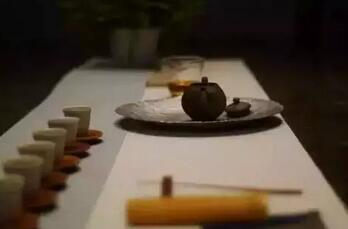Many people say that you must not drink tea at night because it affects sleep. While tea does have a refreshing effect, it can also calm the mind. Adjusting the way you brew tea scientifically not only avoids insomnia but may even improve sleep quality.

The reason tea has a refreshing effect is mainly due to the caffeine it contains. Typically, within the first two minutes of brewing, caffeine is the first component to dissolve into the water, giving the tea a strong stimulating effect. After two minutes, tea polyphenols begin to release, counteracting the stimulation of caffeine to some extent, reducing its impact on the nerves. Therefore, drinking tea at night is possible—simply discard the first brew after two minutes and steep again.

Additionally, it is recommended to drink red tea at night rather than green tea. Green tea is unfermented and contains higher levels of caffeine, making it more stimulating and less conducive to sleep. Red tea, on the other hand, is fully fermented, with fewer tea polyphenols and a milder, gentler nature after processing. For those with sensitive stomachs, adding a bit of milk to red tea can help warm and soothe the stomach.
Of course, for certain individuals, it is better to avoid tea at night, such as those who are easily emotionally agitated, have poor digestive health, or consistently struggle with sleep. If drinking tea at night, opt for a lighter brew rather than a strong one.